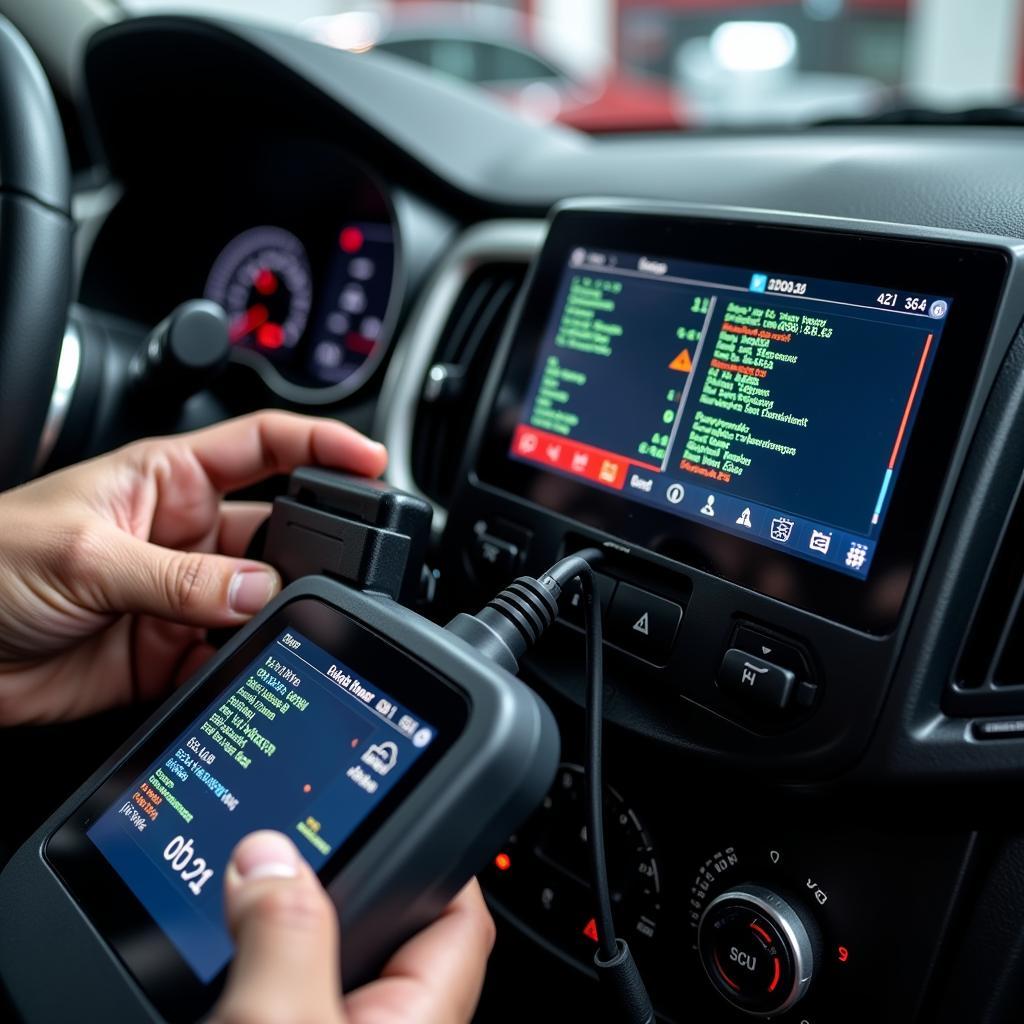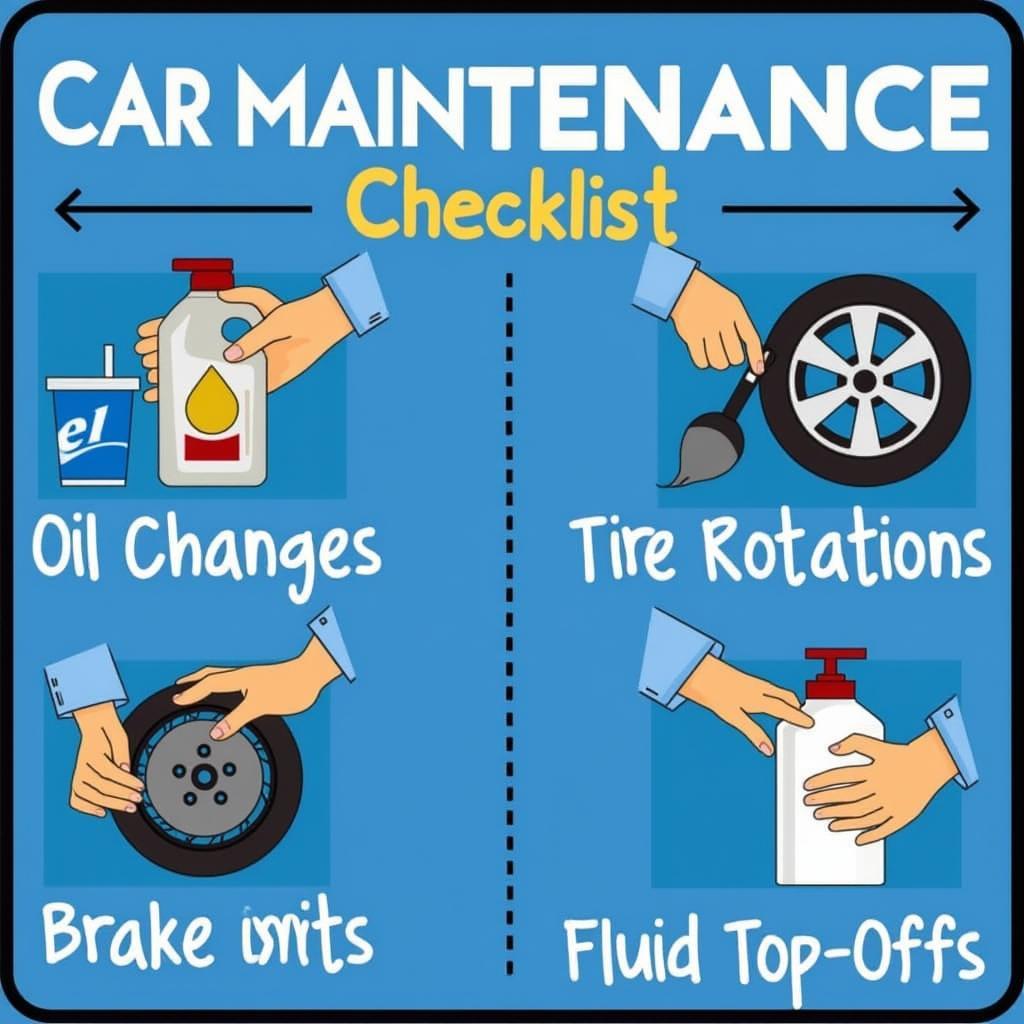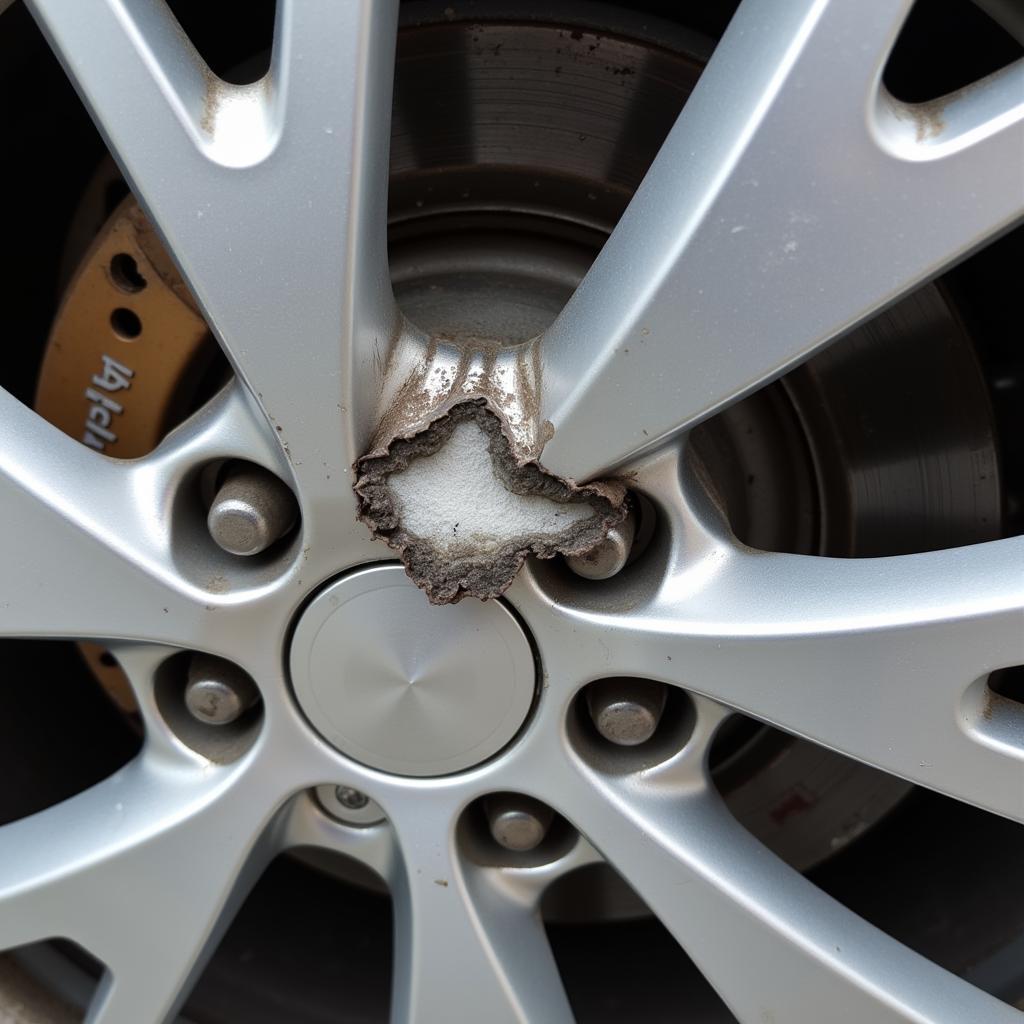Finding a trustworthy mechanic to answer the question “Who Will Fix My Car?” can feel overwhelming. Whether it’s a routine oil change or a major engine repair, your car is a significant investment, and you want to ensure it’s in capable hands. This guide provides valuable insights into identifying qualified professionals, understanding repair options, and ultimately, making informed decisions about your vehicle’s maintenance and repair. We’ll explore everything from choosing the right type of repair shop to deciphering common car problems.
Choosing the right auto repair shop can be daunting. Do you go with a dealership, an independent shop, or a specialized center? What are the pros and cons of each? Understanding these distinctions is crucial to getting the best service for your vehicle.
Types of Auto Repair Shops: Dealerships, Independents, and Specialists
Dealerships specialize in the brand they sell, offering factory-trained technicians and access to original equipment manufacturer (OEM) parts. However, this expertise often comes at a premium price. Independent shops, on the other hand, can offer more competitive pricing and often handle a wider range of makes and models. Finally, specialized centers focus on specific areas, like transmission repair or bodywork, providing expert knowledge for complex issues. Understanding these differences is the first step in finding someone who can expertly fix your car.
books for kids about fixing cars
Each type of repair shop has its own benefits and drawbacks. Choosing the right one depends on your specific needs and budget.
Decoding Common Car Problems: From Strange Noises to Warning Lights
From a mysterious knocking sound to an illuminated check engine light, understanding common car problems can empower you to communicate effectively with your mechanic and avoid unnecessary repairs. Is that grinding noise coming from your brakes or something more serious? Knowing the potential causes can help you ask the right questions and ensure you’re getting the appropriate service.
 Diagnosing car problems with a diagnostic tool
Diagnosing car problems with a diagnostic tool
What to Look for in a Trustworthy Mechanic: Qualifications and Customer Service
Finding a trustworthy mechanic isn’t just about technical skills; it’s also about customer service. Look for certifications like ASE (Automotive Service Excellence) which indicate a commitment to ongoing training and high professional standards. Reading online reviews and asking for recommendations from friends and family can provide valuable insights into a shop’s reputation and customer service practices. A good mechanic will explain the repairs clearly, answer your questions patiently, and provide a detailed estimate before starting any work.
“A skilled mechanic understands that building trust is as important as fixing cars,” says John Miller, a seasoned automotive technician with over 20 years of experience. “Clear communication and transparent pricing are essential for establishing long-term relationships with customers.”
How to Ask the Right Questions: Empowering Yourself in the Repair Process
Don’t be afraid to ask questions. Inquiring about the estimated cost, the specific repairs needed, and the warranty offered can help you make an informed decision. Understanding the problem and the proposed solution empowers you to take control of the repair process. Asking “who will fix my car?” is only the beginning. The next step is asking, “How will they fix it, and what will it cost?”
 Mechanic explaining repairs to a car owner
Mechanic explaining repairs to a car owner
Maintaining Your Car: Preventative Maintenance Saves Money and Headaches
Preventative maintenance is key to avoiding costly repairs down the road. Regular oil changes, tire rotations, and brake inspections can help identify potential problems before they become major headaches. Sticking to your car’s recommended maintenance schedule not only prolongs its lifespan but also ensures optimal performance and fuel efficiency.
Warranty and Guarantees: Protecting Your Investment
Always ask about warranties and guarantees on parts and labor. A reputable shop will stand behind their work and offer some form of warranty, providing peace of mind knowing that you’re protected if a problem arises after the repair.
 Car maintenance checklist for preventative care
Car maintenance checklist for preventative care
“Preventative maintenance is the best way to avoid unexpected breakdowns and expensive repairs,” advises Sarah Chen, a certified automotive engineer. “A little investment in regular upkeep can save you a lot of money and hassle in the long run.”
Who Will Fix My Car? You Have the Power to Choose
Finding the right person to fix your car requires research, communication, and a little bit of detective work. By understanding the different types of repair shops, decoding common car problems, and asking the right questions, you can confidently answer the question, “Who will fix my car?” and ensure your vehicle receives the best possible care. Connect with AutoTipPro at +1 (641) 206-8880 or visit our office at 500 N St Mary’s St, San Antonio, TX 78205, United States, for expert advice and assistance with all your automotive needs. We are here to help you find the perfect solution for your car repair needs.
FAQ
-
What is ASE certification? ASE certification signifies that a mechanic has met certain industry standards and passed rigorous tests, demonstrating their competence and professionalism.
-
How often should I get an oil change? Refer to your car’s owner’s manual for the recommended oil change interval. It typically ranges between 3,000 and 7,500 miles.
-
What does a check engine light mean? A check engine light can indicate a wide range of problems, from a loose gas cap to a more serious engine issue. It’s essential to have it diagnosed promptly.
-
What are OEM parts? OEM parts are original equipment manufacturer parts, meaning they are made by the same company that manufactured your car.
-
How can I find a reputable mechanic in my area? Ask friends and family for recommendations, read online reviews, and look for certifications like ASE.
-
What should I do if I’m not satisfied with the repair? Communicate your concerns with the shop manager or owner and try to resolve the issue amicably. If that doesn’t work, you may consider filing a complaint with your local consumer protection agency.
-
What are some common signs of brake problems? Squealing or grinding noises, a spongy brake pedal, and a vibrating steering wheel can indicate brake problems.





Leave a Reply